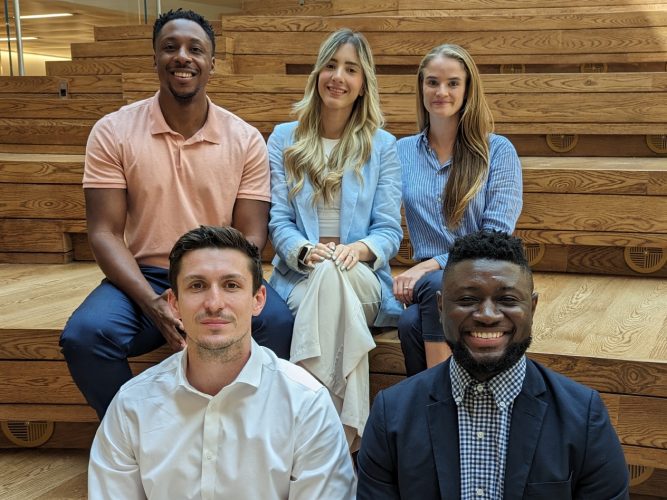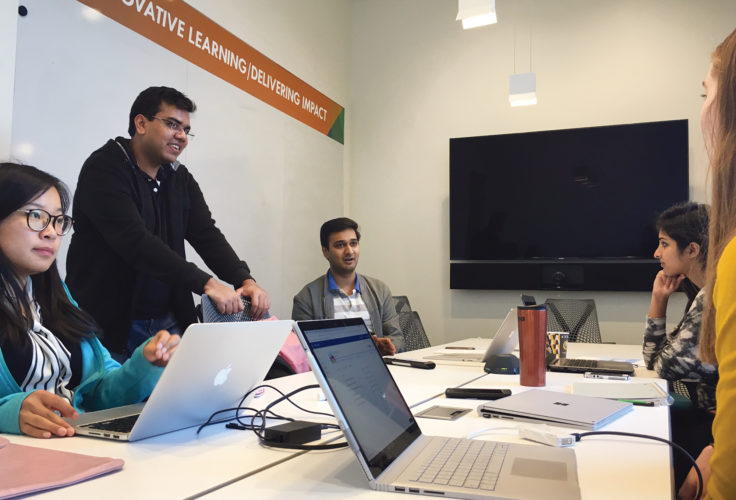Can entrepreneurship be taught? This is a question that schools, students and businesses alike have been asking for decades. The answer seems to be yes and no.
People who gravitate toward MBA programs for entrepreneurship will likely bring a natural inclination toward creativity and innovative thinking. They may have already gained some relevant experience, taken educated risks and learned lessons helpful for starting and growing a business. In short, they have an aspiration and drive toward entrepreneurship.
And just as you wouldn’t go to medical school with no interest in becoming a doctor and expect to come out a top-notch physician, an MBA student shouldn’t come unprepared. Rather, they need the drive to learn and a passion for the topics they’re studying to benefit from the experiences and lessons an MBA program has to offer.
What are the benefits of an MBA for entrepreneurs?
According to Stephen Schwarzman, chairman and CEO of Blackstone and Poets & Quants’ 2023 keynote speaker, an MBA’s role is to “identify and support young people who demonstrate interest, aptitude and entrepreneurship.” The MBA is there to take people who already think creatively about business and give them the tools to make their ideas a reality.
For Schwarzman, inspiration and ideas are just the beginning. Entrepreneurs must learn to fall in love with the problem so that they can live and breathe its potential solutions with a passion that keeps them going. Turning an idea into reality is difficult. It requires organization, management, resources and so much more, but a leader with an entrepreneurial spirit will have the passion and the know-how to tackle every step of the process. This is where an MBA program can lay the foundation for such leadership.
Finding the entrepreneurial spirit and then fostering and refining that talent is the purpose of an MBA. The benefits of an MBA for entrepreneurs are those of a training ground. A university environment supports and cares for students while a rigorous and challenging curriculum teaches students to problem solve with passion. A network of involved faculty and ambitious cohort members is the cherry on top—the people in a university environment create a collaborative ethos where business ideas can be grown from idea to reality and taken into the world.
How does the Olin experience prepare entrepreneurs to start a business?
At Olin, MBA students take their own inclinations and talents and put them to the test. We prepare students for starting a business after their MBA by giving them time and space to experiment. They can learn, fail, learn again and try out ideas in real-world scenarios, all in an environment that supports them.
One important way we provide this atmosphere is by connecting students to businesses outside the school gates. We associate with startups in St. Louis, company founders in San Francisco and investors in New York City. These professionals have already turned their ideas into living, breathing entities. When they share their perspectives, they help students to see how to take an idea into new markets, how to get funding, how to work with complex teams and innumerable other life lessons from the front lines of business.
Another way we prepare students for starting a business is by infusing entrepreneurship throughout our curriculum. We don’t save it for specialized courses or seminars. It’s everywhere. The university itself has an active entrepreneurial life, with MBA entrepreneurship fellowships and an accelerator class we call “The League” aimed at students who are at the fundraising stage for their ideas.
Most importantly, we give students the tools to network and create business relationships of their own. Faculty, staff, advisors and mentors are all on hand, ready to chat about anything they’re thinking about as they create their businesses. The alumni network is a buzzing hive of information and assistance. And in MBA programs for entrepreneurship, classmates can quickly become collaborators.
The MBA in action
Let’s look at an example of a student who has seized the opportunities of an MBA to learn how to become a better entrepreneur.
Kai Skallerud was a medical student when he came to Olin. He was given a year off to pursue his MBA and turned that year into the foundation for a healthcare business. He just won funding for the business via the St. Louis Inno Madness contest.
“Olin’s MBA program gave me the confidence I needed to take entrepreneurial risks in the real world,” Kai says. “The program’s emphasis on experiential learning allowed me to apply classroom concepts to real companies, and the program’s rigorous coursework helped me develop a deep understanding of business strategy and prioritization, which enables me to identify and act on high-impact opportunities in healthcare.”
Kai was able to use the practical training ground of the MBA to empower his entrepreneurial journey. It enabled him to take risks safely in a supportive community of faculty, staff and fellow students.
Can entrepreneurship be taught and learned? We believe that entrepreneurs emerge from their own experiences and instincts, but that when they find their way to an MBA environment like Olin at WashU, we are ready with a training ground. We take their creativity, their zest for business and their love of problem-solving and give them practical ways to turn those talents into businesses that thrive.
So, while there are many skills and concepts that a potential entrepreneur can only gain from the kinds of experiences an MBA offers, it’s the passion that a student brings to the program that helps make them an entrepreneur and successful business leader.







